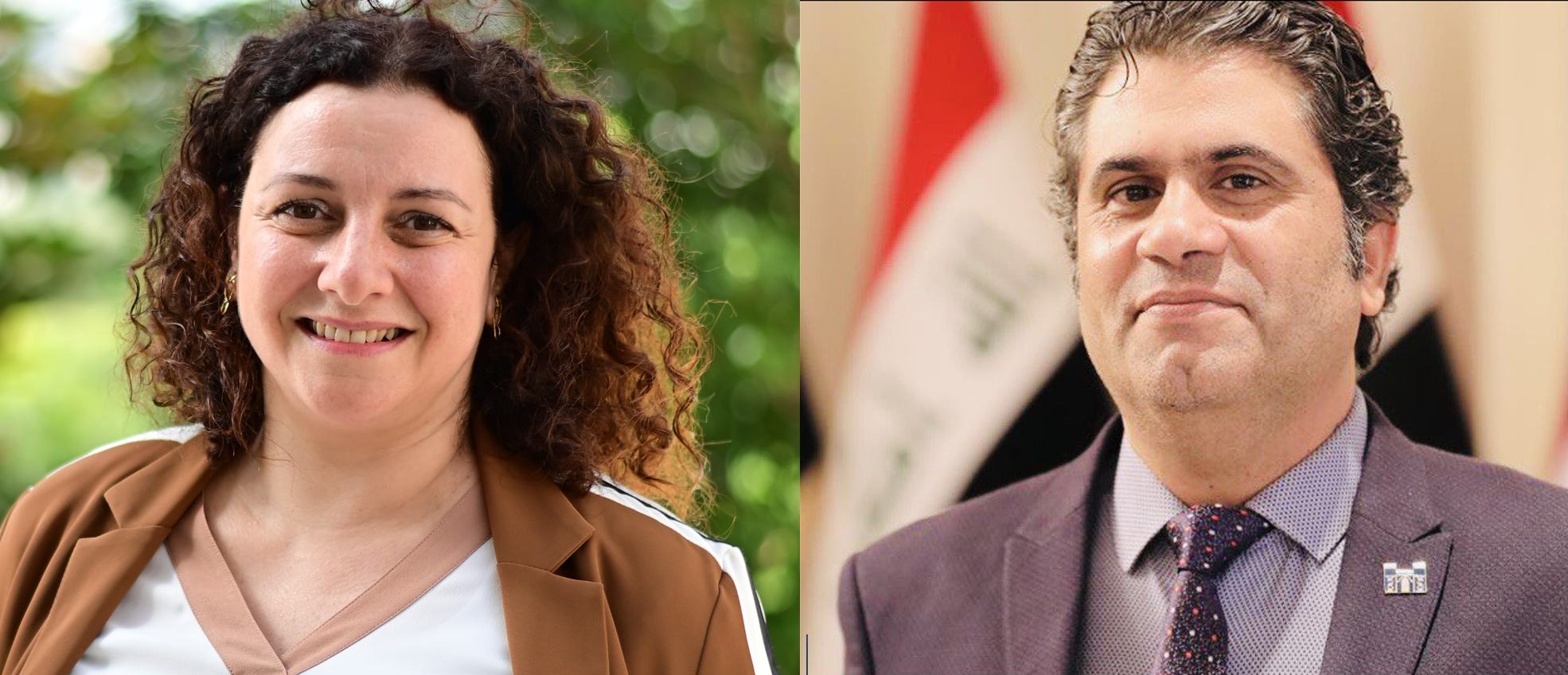The Ibn Rushd Fund for Freedom of Thought is delighted to announce the two winners of this year’s Ibn Rushd Prize: Nayla Tabbara from Lebanon with her organization ‘Adyan Foundation’ and Saad Salloum from Iraq with his organization ‘Masarat’. The two have been named the joint winners of the 20th Ibn Rushd Prize for this year’s topic ‘Freedom of Religion’. The award ceremony will take place on September 8, 2022, in Berlin, Germany.
Arab societies today are strongly marked by harsh incrimination, discrimination and punishment of those criticizing their religious institutions and, even more so, those refusing to adhere to a particular faith. Restrictions are often imposed by governments themselves which tend to use the predominant religion and the religious clergy to legitimize their existence and to enforce their leadership. In addition, religious communities often use religious rules as a pretext to control their members socially.
But recent elections in Lebanon showed a significant shift in voter preferences, who turned in great numbers away from the sectarian divide and towards political content and reforms. What does this tell us about Arab societies today? What does this mean for religious and sectarian control of society? And who are the people at the forefront of fostering the personal freedom of religion, supporting the right to civil marriage, allowing people to move beyond sectarian boundaries? These were the questions we asked ourselves when choosing the topic for this year’s Ibn Rushd Prize.
The Ibn Rushd Prize 2022 therefore called for ‘an institution or a person who fostered or protected religious freedom in their region or country’.
For the first time, the jury of an Ibn Rushd Prize chose two people with their respective organizations as winners of the prize – Nayla Tabbara and her organization ‘Adyan’ from Lebanon, and Saad Salloum and his organization ‘Masarat’ from Iraq. The jury chose these two practitioners as first prize winners “for the great efforts they continue to make in their Lebanese and Iraqi societies respectively and beyond in the Arab World, towards the actual practice of spiritual freedom and solidarity between individuals of different faiths to promote human rights and civilian life based on liberties, including religious liberties – and this in the midst of extremely polarized countries torn by violence and fanaticism” (quote from the jury’s justification).
Both organizations strive for religious pluralism; and while Masarat’s main focus lies on minorities in Iraq and collective memory studies, Adyan Foundation works on promoting inclusive citizenship, mainstreaming Freedom of Religion and Belief (FoRB), and protecting women’s rights against violations by Religious Personal Status laws in force in Lebanon.
The Ibn Rushd Prize 2022 called for:
an institution or a person who fostered or protected religious freedom in their region or country – including the freedom from religion and the possibility of choosing another religion, as well as the freedom from the obligation to marry within the same religious group – and therewith not only countering all kinds of sectarianism as well as the abuse of power by political and religious authorities, but fostering pluralism, tolerance and peace within society.
The person’s or institution’s work must have fostered and protected religious freedom sustainably for all, not only for specific individuals or specific groups in a society.
This year’s jury for the Ibn Rushd Prize, consisting of Elizabeth Kassab (Lebanon/Doha), Khazaal Al-Majidi (Iraq/Netherlands), Asma Lamrabet (Morocco) and Nazmi Al-Jubeh (Palestine), chose as runners-up Omézine Ben Chikha Almeskini (Tunisia) because of “her valuable philosophical contributions towards a liberal understanding of religion”, and Abdeljabbar Rifai (Iraq) because of “his decades long effort to open up new horizons to religious thought even beyond the confines of one religion and one area, despite huge adversities that befell Iraq in recent history” (quotes from the jury’s justification).
- Press please contact press@ibn-rushd.org
- More about the winners of this years prize, their organizations and this year’s jury here.
- Register for the awarding ceremony prize-and-conference-2022/
- View the previous 19 laureates https://ibn-rushd.org/wp/en/ibn-rushd-prize/
The Ibn Rushd Prize 2022 therefore called for:
an institution or a person who fostered or protected religious freedom in their region or country – including the freedom from religion and the possibility of choosing another religion, as well as the freedom from the obligation to marry within the same religious group – and therewith not only countering all kinds of sectarianism as well as the abuse of power by political and religious authorities, but fostering pluralism, tolerance and peace within society.
The person’s or institution’s work must have fostered and protected religious freedom sustainably for all, not only for specific individuals or specific groups in a society.





